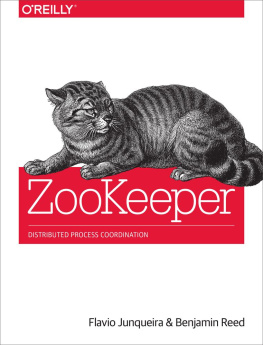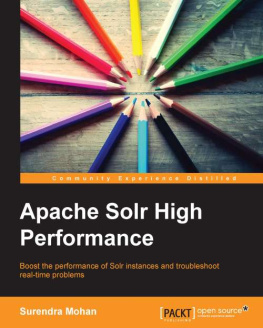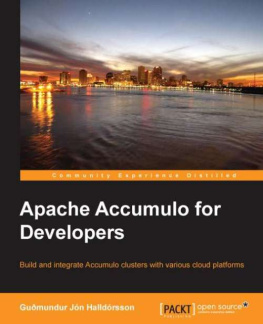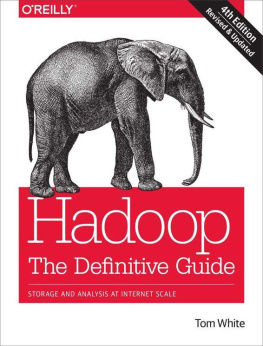Flavio Junqueira - ZooKeeper: Distributed process coordination
Here you can read online Flavio Junqueira - ZooKeeper: Distributed process coordination full text of the book (entire story) in english for free. Download pdf and epub, get meaning, cover and reviews about this ebook. year: 2013, publisher: OReilly Media, genre: Computer. Description of the work, (preface) as well as reviews are available. Best literature library LitArk.com created for fans of good reading and offers a wide selection of genres:
Romance novel
Science fiction
Adventure
Detective
Science
History
Home and family
Prose
Art
Politics
Computer
Non-fiction
Religion
Business
Children
Humor
Choose a favorite category and find really read worthwhile books. Enjoy immersion in the world of imagination, feel the emotions of the characters or learn something new for yourself, make an fascinating discovery.
- Book:ZooKeeper: Distributed process coordination
- Author:
- Publisher:OReilly Media
- Genre:
- Year:2013
- Rating:3 / 5
- Favourites:Add to favourites
- Your mark:
ZooKeeper: Distributed process coordination: summary, description and annotation
We offer to read an annotation, description, summary or preface (depends on what the author of the book "ZooKeeper: Distributed process coordination" wrote himself). If you haven't found the necessary information about the book — write in the comments, we will try to find it.
Building distributed applications is difficult enough without having to coordinate the actions that make them work. This practical guide shows how Apache ZooKeeper helps you manage distributed systems, so you can focus mainly on application logic. Even with ZooKeeper, implementing coordination tasks is not trivial, but this book provides good practices to give you a head start, and points out caveats that developers and administrators alike need to watch for along the way.
In three separate sections, ZooKeeper contributors Flavio Junqueira and Benjamin Reed introduce the principles of distributed systems, provide ZooKeeper programming techniques, and include the information you need to administer this service.
- Learn how ZooKeeper solves common coordination tasks
- Explore the ZooKeeper APIs Java and C implementations and how they differ
- Use methods to track and react to ZooKeeper state changes
- Handle failures of the network, application processes, and ZooKeeper itself
- Learn about ZooKeepers trickier aspects dealing with concurrency, ordering, and configuration
- Use the Curator high-level interface for connection management
- Become familiar with ZooKeeper internals and administration tools
Flavio Junqueira: author's other books
Who wrote ZooKeeper: Distributed process coordination? Find out the surname, the name of the author of the book and a list of all author's works by series.












